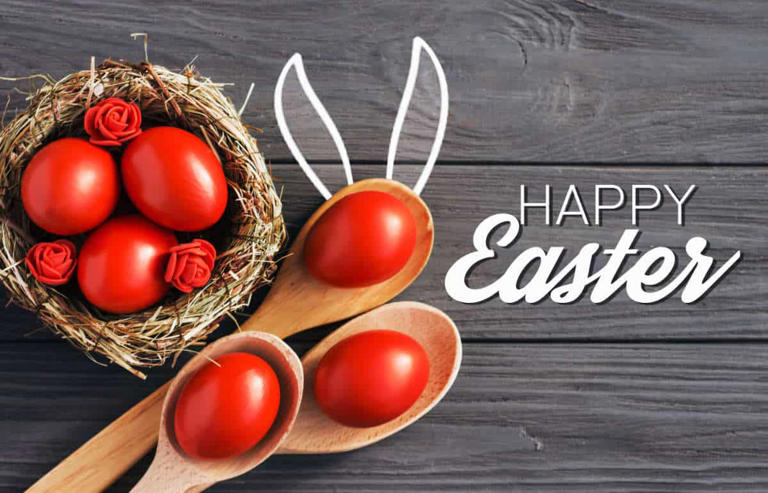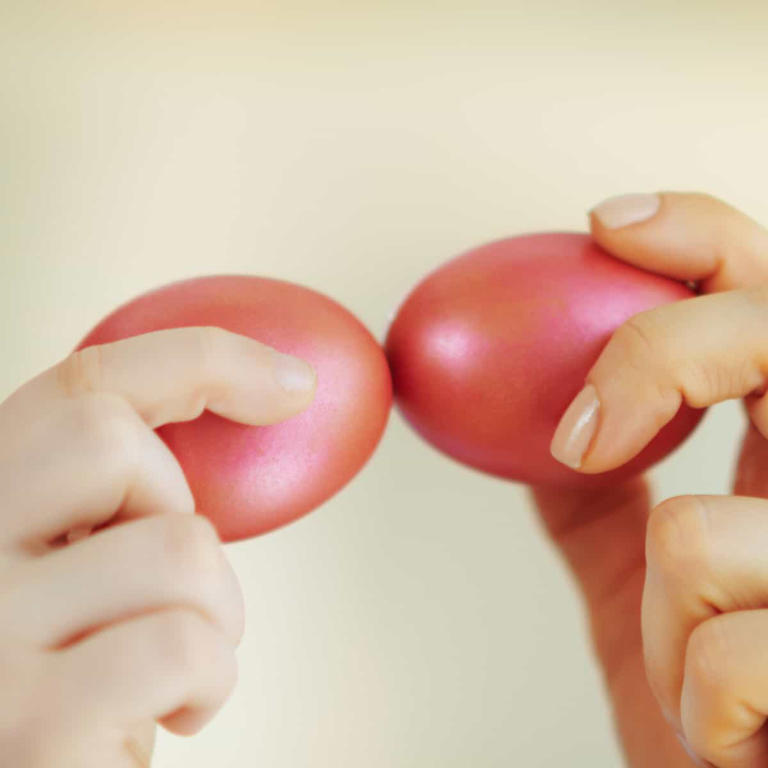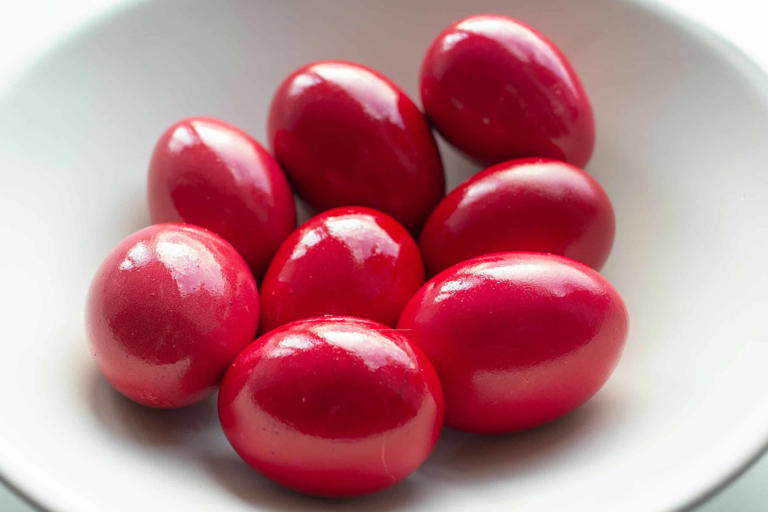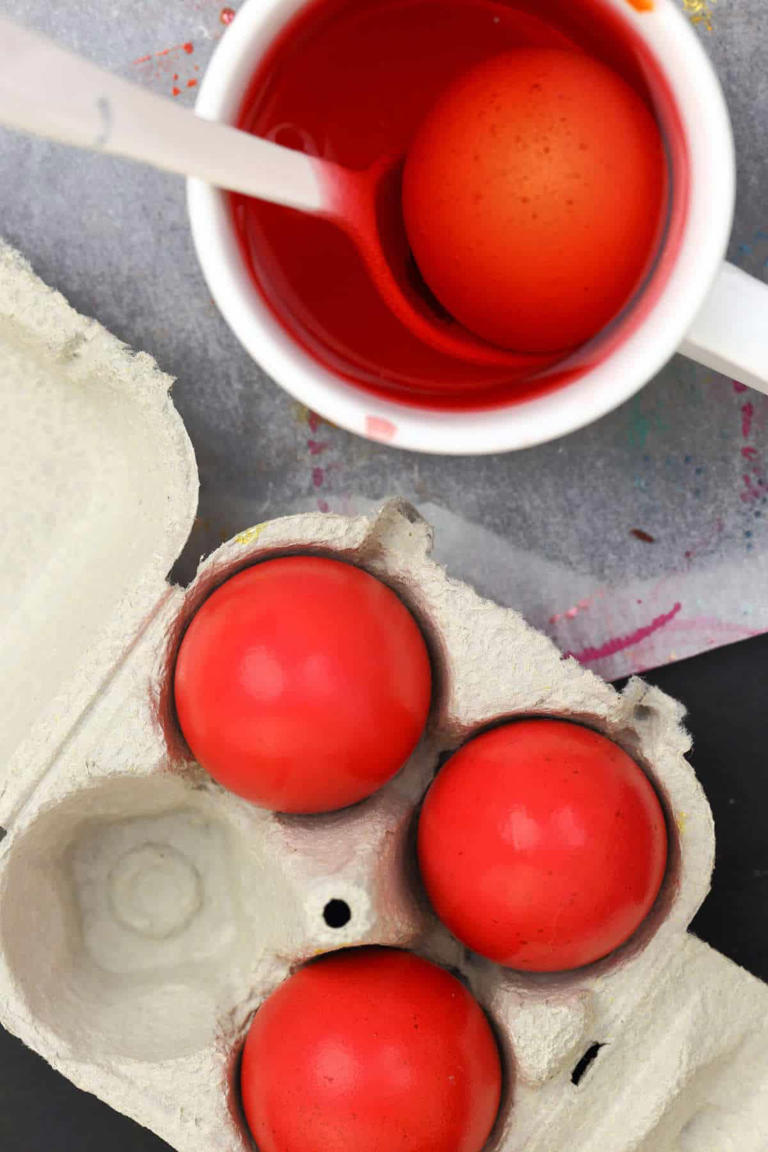It's nearly here!
Tsougrisma: The Greek Easter Egg Game
Easter celebrations around the world are bursting with unique traditions, and Greece is no exception. A delightful game, known as the Greek Easter egg game, takes center stage, bringing families and communities together for a playful competition steeped in tradition.
This seemingly simple activity, involving bright red dyed eggs and a touch of friendly rivalry, holds deep symbolic meaning and historical roots within Greek Orthodox Easter customs.
[feast_advanced_jump_to]The Heart of Tsougrisma: Cracking Eggs and Sharing Blessings
At the heart of Tsougrisma lies a playful competition. Each participant holds a red-dyed Easter egg, traditionally hard-boiled chicken eggs.
Players then take turns tapping the ends of their eggs against each other, uttering the phrases "Christos Anesti!" (by one player) and "Alithos Anesti!" (Indeed He is Risen! by the other) with each tap.
The goal? To emerge victorious with an unbroken egg! The player with the last unbroken egg is declared the winner and is believed to be blessed with good luck for the coming year.
A Tradition Steeped in Symbolism
The vibrant red color of the Easter eggs is no accident. In Greek Orthodox tradition, red symbolizes the blood of Christ shed on the cross.
The hard shell of the egg represents the sealed tomb of Jesus, and the cracking of the egg during Tsougrisma signifies the triumphant resurrection.
Each tap and response ("Christos Anesti!" and "Alithos Anesti!") echo the core message of Easter: the death and rebirth of Jesus Christ.
A History as Rich as the Red Dye
Shrouded in mystery, the Greek Easter egg game likely stems from both ancient fertility rites (eggs symbolizing new life) and pagan celebrations (tapping eggs representing spring's arrival).
Over time, these elements blended with Christian traditions, forming the unique game enjoyed today.
The red dye was originally onion skins as when steeped to a very dark shade they're a sienna red-orange shade. Modern red Greek eggs tend to use food coloring though.
A Time for Family and Community
While winning Tsougrisma brings bragging rights and a touch of good luck, the true essence of the game lies in its ability to bring families and communities together.
The Easter table becomes a battleground for friendly competition, filled with laughter, cheers, and playful taunts. Children eagerly face off against adults, grandparents challenge grandchildren, and cousins test their egg-tapping skills.
This lighthearted competition strengthens bonds and creates lasting memories.
Playing Tsougrisma: Tips and Tricks (or Not!)
There's no official rule book for Tsougrisma, and perhaps that's part of its charm. However, some time-tested "strategies" (though their effectiveness is debatable) have been passed down through generations. These include:
- The "Strong" Egg: Some may choose particularly strong eggs, hoping they'll withstand the tapping onslaught. However, a thicker shell might not always guarantee victory.
- The "Secret Weapon": Legends abound of players using boiled or dyed quail eggs, hoping their smaller size will give them an edge. Whether this is ethical (or even effective) is a matter of personal Tsougrisma philosophy!
- The "Lucky Charm": Many believe in the power of positive thinking. Holding your egg with confidence and focusing on its strength might just give you a mental edge.
Ultimately, the true joy of Tsougrisma lies in the spirit of the game. Embrace the friendly competition, enjoy the camaraderie, and savor the symbolism behind the cracking of each egg.
Related
Cracking Open a World of Greek Easter Traditions
Tsougrisma is just one piece of the vibrant tapestry of Greek Easter traditions. To delve deeper, explore these resources:
- Greek Easter: Customs and Traditions (https://realgreekexperiences.com/greek-easter-traditions) offers a comprehensive overview of Greek Easter customs, including Tsougrisma, food, and religious practices.
- The Spruce Eats: Tsougrisma: The Greek Red Easter Egg Game (https://www.thespruceeats.com/greek-easter-egg-game-1705738) provides detailed instructions on how to play Tsougrisma and explains the symbolism behind the game.
- Keep Talking Greece: Greek Easter Eggs symbolism in color and cracking tradition (https://www.keeptalkinggreece.com/category/1-news/) explores the significance of the red color and the cracking tradition in Greek Easter celebrations.
So, this Easter, gather your loved ones, dye some eggs a vibrant red, and get ready for a fun-filled round of Tsougrisma. A
s you tap your eggs together and celebrate the resurrection of Christ, remember that the Easter is a time of family, reverence, and celebration with the traditions you love.
The post Tsougrisma: The Greek Easter Egg Game appeared first on Smells Like Delish.










